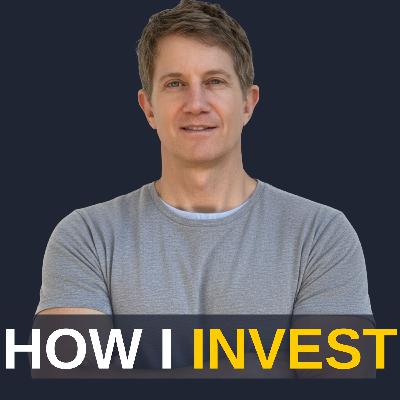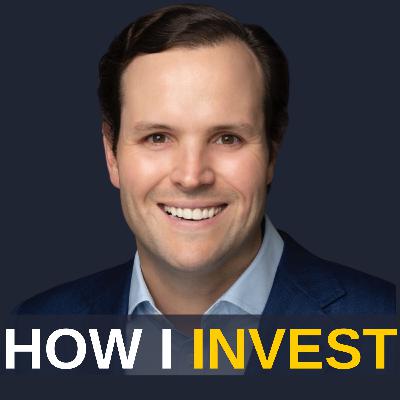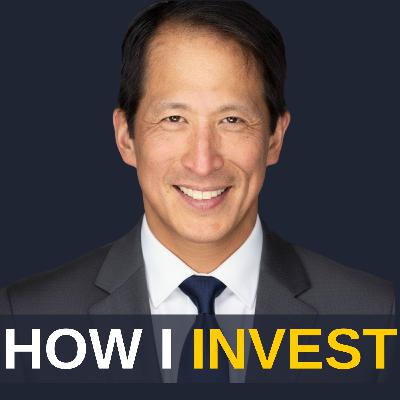E224: Ex-CIO of Northern Trust: The Next Decade Belongs to Bonds, Not Stocks
Description
In this episode, I speak with Thomas E. Swaney II, former Chief Investment Officer of Global Fixed Income at Northern Trust Asset Management, who oversaw more than $600 billion across global fixed income. Thomas explains why traditional bond allocations fail when it matters most, how to separate duration from credit risk, and how to use notional leverage to target true diversification without sacrificing liquidity. We explore the structural flaws in 60/40, how to design a fixed income portfolio that actually offsets equity drawdowns, and why the future of bond investing depends on better risk budgeting—not higher yield.
Highlights:
- Fixed Income Is Broken: Why most bond portfolios don’t diversify when equities fall
- Rebuilding the 40%: Duration vs. credit and managing correlation through regimes
- Notional Leverage: Using treasury futures and IG CDX to build volatility with quality
- Risk Parity Framework: Allocating by contribution to risk, not nominal dollars
- Rebalancing Alpha: Liquidity and negative correlation as the real edge
- Curve Positioning: Why the belly of the curve often outperforms the long end
- Convexity Mismatch: Public vs. private assets and the lagged rebound effect
- Inflation Regimes: How correlation flips and when to incorporate TIPS
- Leadership & Culture: Lessons from Ellington and Northern Trust on process and debate
- The Next Decade: Bonds are relevant again—if built for resilience
Guest Bio:
Thomas E. Swaney II is the former Chief Investment Officer of Global Fixed Income at Northern Trust Asset Management, where he had broad oversight of the $600+ billion fixed income platform, spanning business management, portfolio management, and strategy. As CIO, he chaired the Fixed Income Strategy Committee, guiding macroeconomic themes, risk budgeting, and portfolio construction across all fixed-income portfolios. He also served on Northern Trust’s Investment Committee and Executive Group within Asset Management.
Prior to Northern Trust, Thomas held senior executive and portfolio management roles at J.P. Morgan Asset Management, Morgan Stanley Investment Management, OFI Global Asset Management, and Ellington Management Group. He holds a B.B.A. and M.B.A. with a concentration in corporate financial analysis, as well as an M.Sc. in Finance from the Kelley School of Business at Indiana University, and has more than 26 years of investment experience.
Our Podcast now receives more than 300,000 downloads a month. Are you interested in sponsoring an episode? Please email David Weisburd at david@weisburdcapital.com.
Stay Connected:
X / Twitter:
David Weisburd: @dweisburd
LinkedIn:
David Weisburd: https://www.linkedin.com/in/dweisburd/
Thomas E. Swaney II: https://www.linkedin.com/in/swaneycio/
Links
Factor Two Capital Management: https://brand.site/factortwocapital
Questions or topics you want us to discuss on How I Invest? Email us at david@weisburdcapital.com.
(0:00 ) Preview
(0:48 ) Thomas Swaney's career and Miller Anderson's open debate culture
(5:00 ) Challenges and impacts of open dialogue culture in investment firms
(6:42 ) Education systems and their influence on investment thinking
(7:47 ) Leadership vs. Investment Skills
(9:40 ) Shifting Northern Trust's focus and lessons from Ellington
(18:45 ) The role and strategies for fixed income in a diversified portfolio
(23:35 ) Understanding market downturns and Bridgewater's equilibrium approach
(27:24 ) Decomposing and maximizing efficiency in bond portfolios
(33:56 ) Challenges and strategies with private assets in portfolios
(38:40 ) The impact and use of leverage in investment portfolios
(42:43 ) Introduction to Factor Two Capital Management
(44:38 ) Exploring the relationship between volatility and expected values
(49:16 ) Fed independence and market reactions to policy changes
(51:35 ) Misconceptions about monetary policy and economic impact
(53:04 ) Future outlook on fixed income versus equities and prediction markets
(55:24 ) Closing remarks
























